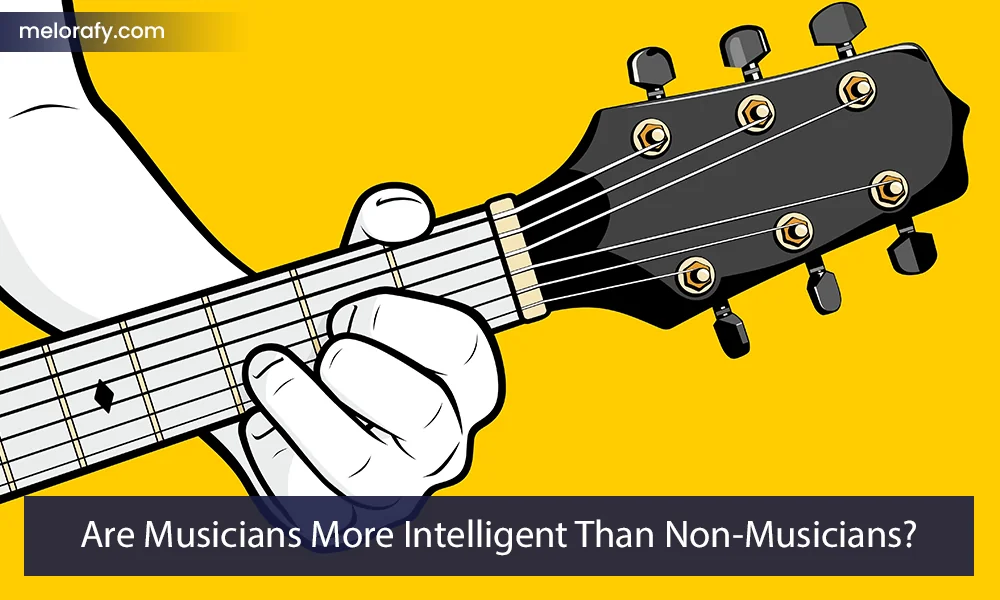
Are Musicians More Intelligent Than Non-Musicians?
The age-old debate of whether musicians are smarter than non-musicians has stirred many. This article from Melorafy explores the research and theories that attempt to address this question and presents the information in an easily digestible format for our readers.
Understanding Intelligence
Before we explore the connection between musical talent and intelligence, it’s crucial to define what we mean by “intelligence.” Traditionally, intelligence is seen as cognitive abilities such as problem-solving, reasoning, and understanding complex ideas. However, this definition has expanded to include emotional, creative, and social intelligence.
The Link Between Music and Intelligence
Research suggests that engaging in musical activities can enhance various cognitive functions. Here are some key points that highlight the relationship between music and intelligence:
Enhanced Memory and Attention
Studies have shown that musicians tend to have better memory and attention skills compared to non-musicians. Learning and playing music requires the ability to remember patterns, melodies, and rhythms, which can translate into improved memory capabilities in other areas of life.
Improved Problem-Solving and Spatial Reasoning
Playing an instrument involves decoding written music and translating it into hand movements and sounds, a process that enhances problem-solving and spatial reasoning skills. These abilities are crucial in mathematics and sciences, suggesting a positive correlation between musical training and academic performance.
![]()
Emotional and Social Intelligence
Music is not just a cognitive exercise; it also involves emotional expression and understanding. Musicians often have heightened emotional intelligence, as they interpret and convey complex emotional states through their performances. Additionally, playing in bands or orchestras fosters social cooperation and empathy, further enhancing social intelligence.
The Nature vs. Nurture Debate
It’s essential to consider the nature versus nurture debate in this context. Are people born with a predisposition to music and intelligence, or are these skills developed through practice and exposure? While genetic factors may play a role, the consensus in the scientific community is that musical training can significantly impact cognitive abilities and intelligence, regardless of innate talent.
Diverse Types of Intelligence
Highlighting the theory of multiple intelligences, it’s important to recognize that intelligence is multifaceted. Someone might not excel in traditional academic tests but could possess extraordinary musical or spatial intelligence. Therefore, comparing musicians and non-musicians solely based on conventional intelligence metrics may overlook the diverse ways in which people exhibit intelligence.
The Role of Music Education in Cognitive Development
Expanding on the connection between music and intelligence, it’s important to delve into how music education plays a pivotal role in cognitive development. Engaging children and adults in music education can have far-reaching benefits that extend beyond the realm of music itself.
![]()
Music Education and Academic Achievement
Several studies have drawn links between music education and higher academic achievement. Students who participate in music programs often have higher grades and perform better on standardized tests. This correlation suggests that the skills learned through music, such as discipline, focus, and multitasking, are transferable to academic pursuits.
The Brain on Music
Neuroscientific research provides insight into how music affects the brain’s structure and function. Musicians often show increased neural activity in areas of the brain associated with auditory processing, memory, and motor control. This enhanced activity indicates that playing music can stimulate brain development and improve cognitive functions.
Lifelong Learning and Music
The benefits of musical training are not confined to childhood or adolescence; they extend into adulthood and can even counteract the cognitive decline associated with aging. Older adults who engage in musical activities show better memory, attention, and cognitive flexibility. Music, therefore, offers a form of cognitive exercise that promotes mental agility and health throughout life.
Addressing the Myths
While exploring the connection between musicians and intelligence, it’s crucial to address common myths. For instance, the idea that listening to classical music alone can make someone smarter, often referred to as the “Mozart effect,” has been widely debunked. Intelligence and cognitive improvements are more directly related to active engagement in music-making rather than passive listening.
Equity in Music Education
An important aspect of this discussion is the accessibility of music education. Socioeconomic factors can limit access to music education and the benefits it provides. Advocating for equitable music programs in schools and communities is essential to ensure that all individuals have the opportunity to experience the cognitive and emotional benefits of musical engagement.
The Broader Perspective
When considering whether musicians are more intelligent than non-musicians, it’s important to take a holistic view. Intelligence is not a fixed trait but a dynamic spectrum of abilities and potentials. Music can be a powerful tool for unlocking and developing these potentials, but it is not the sole path to intelligence. A variety of experiences and learning opportunities contribute to cognitive development and intelligence in multiple dimensions.
![]()
A Harmonious Relationship
While the question of whether musicians are inherently more intelligent than non-musicians cannot be answered definitively due to the complex nature of intelligence, it is clear that engaging in music can enhance various cognitive, emotional, and social skills. Whether through improved memory, enhanced problem-solving abilities, or greater emotional understanding, the study and practice of music offer valuable benefits that can contribute to what we perceive as intelligence.
It’s also worth noting that intelligence and musical ability are not solely the result of genetic predisposition. Dedication, practice, and a nurturing environment play significant roles in developing these skills. So, while musicians may exhibit enhanced cognitive functions in certain areas, attributing this solely to their musical expertise would oversimplify the intricate web of factors that contribute to intelligence.
In the end, music enriches our lives in numerous ways, transcending the mere acquisition of knowledge or skill. Whether or not musicians are more intelligent than non-musicians, the pursuit of music is a valuable and enriching endeavor that cultivates a broad range of intelligences, contributing to a well-rounded and fulfilling human experience.